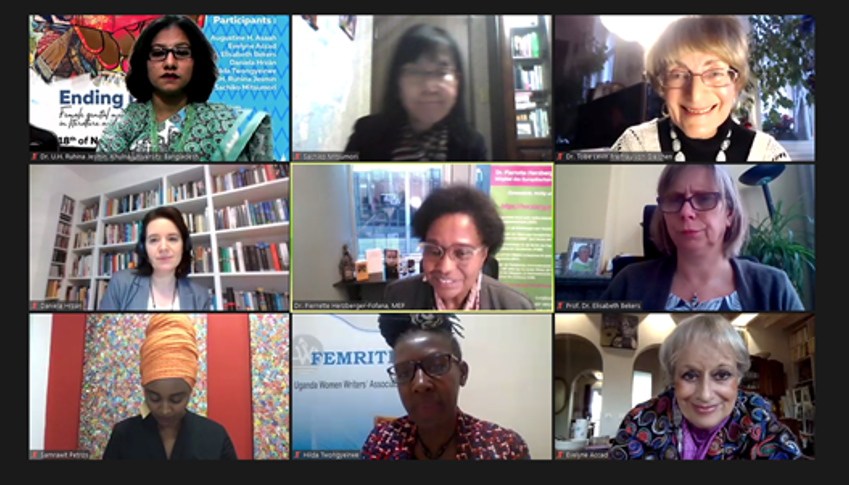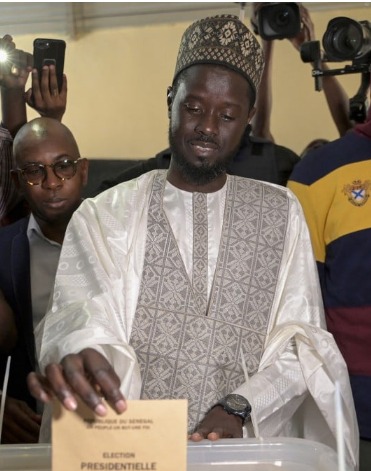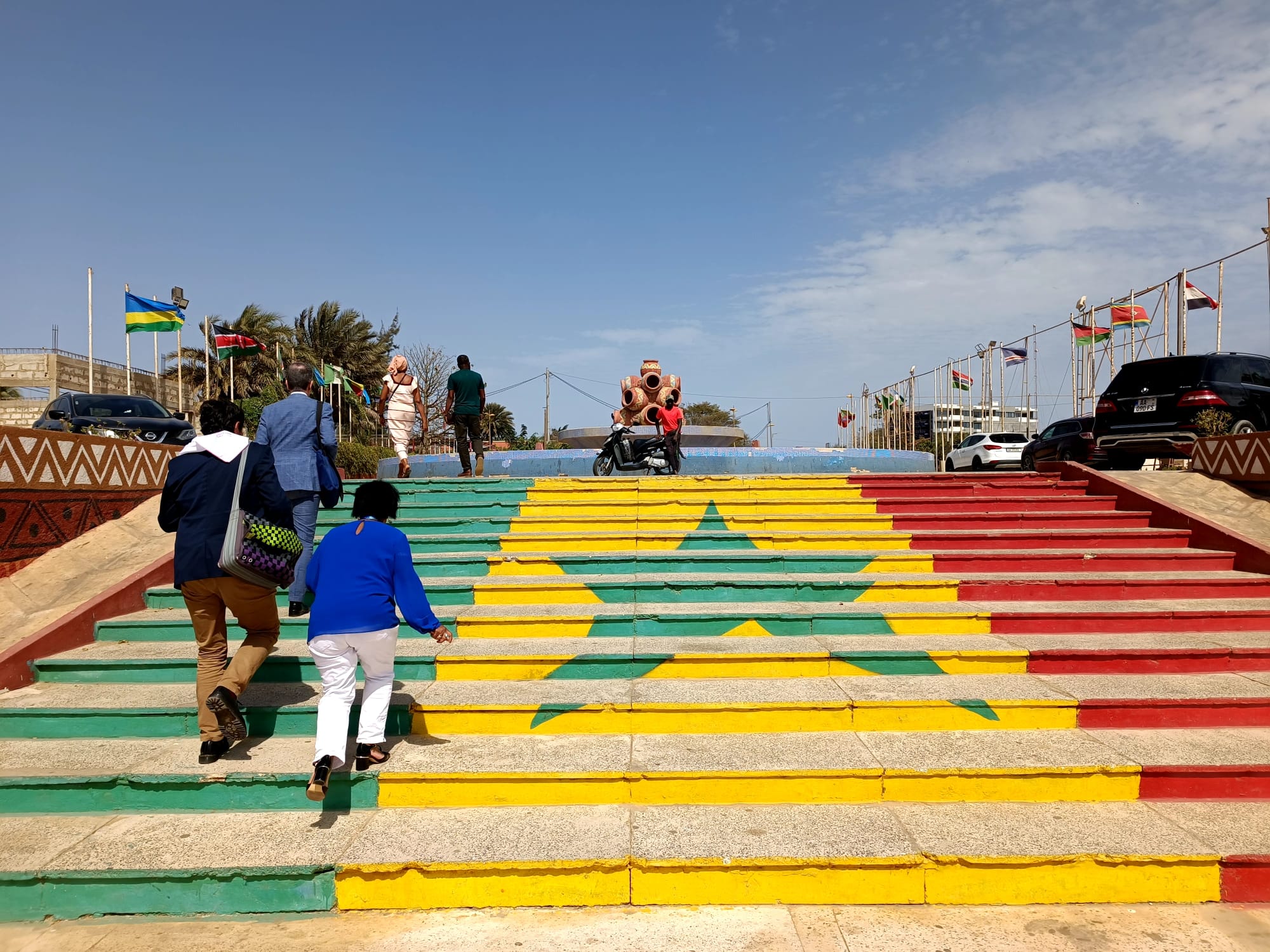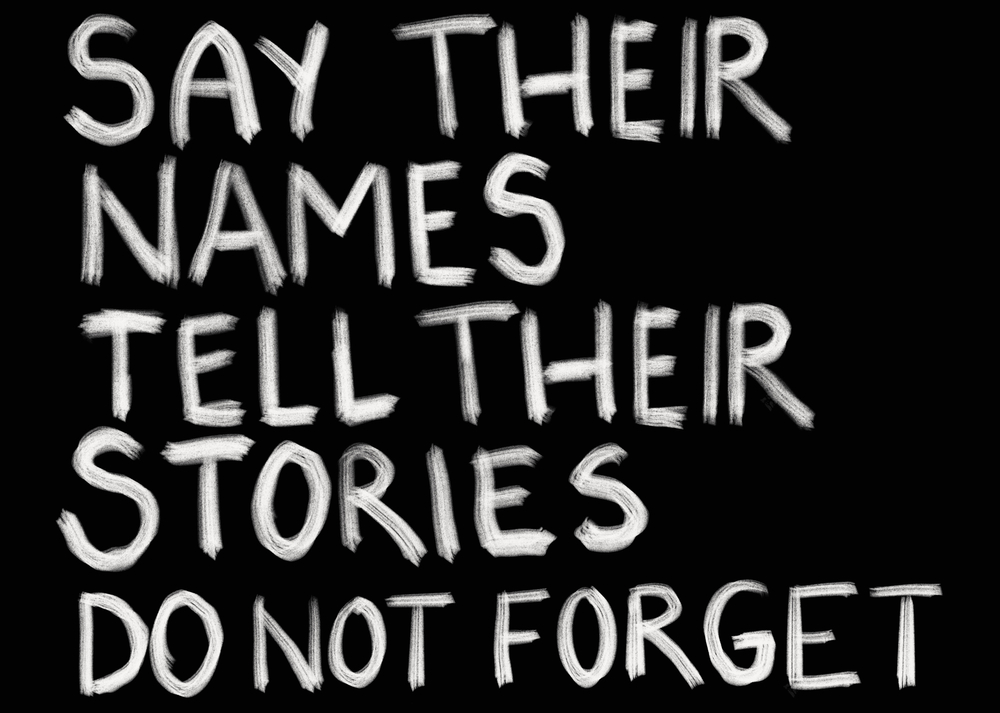Liebe Mitstreiter*innen im Kampf gegen die Beschneidung an Mädchen und Frauen,
Sex ist, dem Volksmund nach, die schönste Nebenbeschäftigung der Welt. Menstruation nervt, aber frau muss im Rahmen ihrer weiblichen Fruchtbarkeit eben irgendwie durch. Urinieren ist nichts Erwähnenswertes, es geht schnell, in Filmen bekommt man nicht einmal mit, dass jemand auf‘s Klo geht. Das sollte man aber vielleicht. Gerade, wenn es um FGM geht. Durch Female Genitale Mutilation werden sogenannte Nebensächlichkeiten durch Schmerz und Angst auf eine gefährliche Weise lebensbestimmend und so ist es unsere Pflicht, nach immer neuem Dialog und neuen Wegen für die Beendigung dieser grausamen Unsitte zu suchen.
In mir kommt keine Freude auf, wenn ich mich, immer wieder auf‘s Neue, einarbeite in das Thema FGM, für dessen Abschaffung ich mich seit Jahrzehnten engagiere. Und trotzdem: ich freue mich, Sie alle in diesem Rahmen begrüßen zu dürfen und ich bedanke mich schon jetzt für Ihren jeweiligen Mut, Ihr Interesse, Ihr Engagement, Ihre Stimme und Ihre Aufmerksamkeit. Wir haben Manches erreicht im Kampf gegen die Beschneidung an Mädchen und Frauen – und noch sehr viel mehr vor uns. Die heutige Veranstaltung ist mir ein besonderes Anliegen, denn die Kraft von Kunst und Literatur, der Einfluss medialer Formate und künstlerischer Narrative könnte ein Schlüssel sein zu einem progressiveren Umgang und einem interdisziplinär besser verknüpften Vorgehen. Dabei steht die Aufarbeitung schon erlittener Traumata und die unbedingte Vermeidung neuer Verletzungen im Vordergrund unser aller Arbeit.
Immer wieder auf‘s Neue versuche ich, mich hineinzuversetzen in ein einzelnes junges Mädchen, das durch einen traditionalistisch begründeten, himmelschreiend falschen Eingriff, einen Teil von sich verlieren muss und einen Teil von sich nie wird kennenlernen dürfen. Und schon dieser Versuch des Hineinfühlens in den Schmerz und die Scham eines einzelnen verletzten Mädchens richtet mich immer und immer wieder auf, meine Stimme für eine Menschenrechtsverletzung zu erheben, die eklatanter kaum sein könnte und gleichzeitig nach wie vor mit so viel Schweigen und Unsichtbarkeit versehen ist.
Seit vielen Jahren mache ich mir Gedanken über Strategien, die den Schleier des Schweigens zu lüften vermögen und Licht ins Dunkle bringen können. Ich habe Regalwände voller Bücher, die es in den 60er, 70er Jahren geschafft haben, FGM zur Sprache zu bringen, das Thema aber nicht aus dem Verteidigungsmodus kultureller Bedingtheiten heraus zu hebeln. Ich habe in den 80er und 90er Jahren beobachtet, wie im Gerangel um Deutungshoheiten, Feministinnen verschiedener Erdteile wichtige Debatten angestoßen und sich darin auch durchaus verfangen haben. Ich nehme wahr, dass derzeit immer mehr mutige Frauen ihre Geschichten erzählen, Biographien und Autobiographien förmlich aus dem Boden sprießen und eine Dringlichkeit und einen unbedingten Redefluss in den Raum stellen. Ich durfte in den vergangenen Jahren erleben, dass es auch Bewegung auf politischer Ebene gibt. Meine Stimme bringe ich diesbezüglich auf europäischer Ebene regelmäßig ein. Und um ein konkretes Beispiel politischer Bewegung zu nennen: Um der Nulltoleranz gegen FGM/C entschlossen die Stirn zu bieten, hat das deutsche Bundesministerium für Familie, Senioren, Frauen und Jugend in Zusammenarbeit mit anderen Ministerien und Organisationen 2020 einen Schutzbrief gegen weibliche Genitalverstümmelung entwickelt. Der Schutzbrief ist ein offizielles Dokument der deutschen Regierung, das Bewusstsein schaffen und präventiv eingesetzt werden soll, um FGM/C als das zu kennzeichnen, was es ist: ein Verbrechen an (meist jungen) Mädchen und Frauen.
Ein Punkt geht, bei allen Debatten und Regungen auf politischer, medizinischer und auch philosophischer Ebene meiner Feststellung nach überraschend leicht verloren, denn es ist ein sehr fragiler Gesichtspunkt: die Empathie, das empathische Verstehen der einzelnen Frau, des einzelnen Mädchens.
Sich wirklich einfühlend zu zeigen ist ein sensibler Bereich, er bedeutet mithin das zumindest teilweise Verlassen einer sachlichen Ebene oder eines Diskurses. Im Einfühlen zeigt sich nicht zuletzt die eigene Verletzlichkeit, die eigene Angst und die eigene Scham. Ich glaube aber sehr, dass es gerade an dieser Stelle ein Nachjustieren im Kampf gegen Beschneidung an Mädchen und Frauen geben muss, das hilfreich für alle Beteiligten sein könnte.
Und hier tritt das auf den Plan, wofür hier heute mitunter angetreten sind. Literatur und Kunst bieten dem Menschen Rückzugsorte, an denen die Auseinandersetzung mit der eigenen Innerlichkeit, mit den eigenen Lebensanschauungen und -praktiken, Raum findet. Sich in eine Installation zu vertiefen oder eine Romanfigur durch eine Erzählung zu begleiten sind im Fiktionalen angesiedelte Zeiträume, in denen die eigene Wirklichkeit mit einer vorgestellten Wirklichkeit in einen Austausch gehen kann. Und diese innerliche Auseinandersetzung des oder der Lesenden oder Schauenden hat, wie wir wissen, nicht selten ein revolutionäres Moment. Kunst und Literatur wohnen ja eine so ungeheure Kraft inne, weil sich der Mensch mit ihnen in einen Zustand des „als ob“ begeben kann, weil mit dem Schauen eines Gemäldes oder mit dem Lesen eines Buches ein innerliches Forschen angestoßen werden kann, das nicht verbindlich ist. Und diesen Weg über die Freiheit und Kraft, die Literatur und Kunst mit sich tragen, brauchen wir, um dem Ende der Beschneidung an Mädchen und Frauen ein Stück näher zu kommen.
Eine Broschüre ruft mich dazu auf, gegen oder für etwas in Stellung zu gehen. Eine Studie konfrontiert mich mit Zahlen und Fakten, die eine vielleicht erschreckende Verbindlichkeit mit sich bringen. Eine Abstimmung im politischen Rahmen oder ein Kongress im fachlichen Kontext spielt sich jeweils in relativ hermetisch abgeschlossenen Räumen ab. Das alles ist gut so und wichtig.
Ein Roman aber, um dieses Beispiel herauszugreifen, entfaltet seine mögliche, fulminante Kraft auf leisen Sohlen. Ein Roman trägt seine Themen nicht vor sich her, sondern verpackt Kritik, Sprengkraft und vor allen Dingen die Möglichkeit, sich als Lesende*r rief empathisch zu zeigen in seine je eigene Sprache und Geschichte. Und ein gutes Stück Literatur oder ein überzeugendes Kunstwerk hinterlässt den einzelnen Menschen immer auf subtile Weise verändert.
Vorgestern ist die Philosophin Donna Haraway vom Kunstmagazin „monopol“ zur aktuell wichtigsten und einflussreichsten Persönlichkeit der Kunstwelt gekürt worden. Sie ist wohlgemerkt Philosophin, Theoretikerin und nicht Künstlerin. Aber ihr großes Thema – wie der Mensch eine funktionierende Koexistenz mit anderen Spezies und der Natur insgesamt sichern könnte – beeinflusst, wie nachzulesen ist, schon sehr lange viele Künstler*innen rund um den Globus.
Warum erwähne ich dies im Zusammenhang mit FGM? Weil es zeigt, dass interdisziplinäres Arbeiten und vielleicht nur dieses, wirklich Diskurse anstoßen und Entwicklungen vorantreiben kann. Für den Kampf gegen die Beschneidung an Mädchen und Frauen brauchen wir die Wissenschaft, die Medizin, die Psychologie, brauchen wir die Politik und ihre Entscheidungsträger*innen, brauchen wir mutige Frauen und ihre mutigen Erfahrungsberichte, brauchen wir Aufklärungskampagnen und Schulungen. Und wir brauchen eben auch die Kunst und die Literatur. Deren Freiheit, mit Unvernunft und Direktheit umzugehen, mit Verspieltheit und Schonungslosigkeit, ist unsere Freiheit. Dort kann Sex und Menstruation und der Gang auf‘s Klo Raum bekommen, dort können Themen en passant eingeflochten werden, um dadurch umso präsenter zu sein. Wir brauchen diesen Stoff des Fiktionalen, um der Wirklichkeit und dem Schutz tausender Mädchen und Frauen auf die Spur zu kommen. Es sind immer noch mehr als drei Millionen jährlich und weltweit, deren Unversehrtheit auf dem Spiel steht!
Ich bin gespannt auf Ihre Beiträge und bedanken mich für Ihre Aufmerksamkeit.
Unten finden Sie die Aufzeichnung unseres Webinars zum Anschauen.




